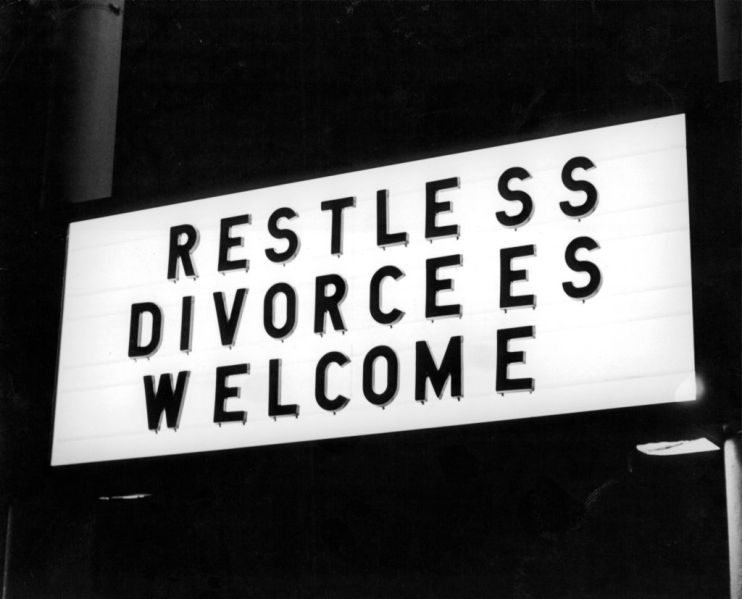Explainer: How did a couple find themselves divorced by accident?

The reason is indicative of how radically the divorce process has changed in the past two years, writes Lucy Kenningham
Marriage by accident happens whilst drunk in Vegas. Divorce by accident happens, nowadays, at the slip of a finger.
As the newly-single Mr and Mrs Williams discovered at the end of last week. The Williamses had been married for 21 years, and were in the process of separating but still negotiating their finances. Apparently, a solicitor at the ultra-high net worth firm Vardags clicked the wrong case name when scrolling a drop-down menu on the divorce application portal. Within 21 minutes, the divorce was approved and the couple’s marital connection was severed. Two peaceful days passed, in which the Williams were happily and ignorantly divorced.
After the firm had found the couple to be erroneously divorced, a process that took a mere 21 minutes, they attempted to speak to the high court and change the ruling. But the judge declined to accept them, implying that it would undermine the integrity of the law. Sir Andrew McFarlane, head of the family division at the high court, said: “a strong public policy interest in respecting the certainty and finality that flows from a final divorce order”.
Vardags, which is headed – ironically – by a woman whose nickname is ‘diva of divorce’ accepted the mistake, but said it did not convey anything negative about the culprit lawyer, who she claimed is one of the best of an upcoming generation, and definitely “not careless” and, by the way, “not sloppy”. One anonymous commentator on the Law Gazette’s site said: “It’s very nice to see that the firm is standing behind the poor unfortunate that made the mistake.” Indeed. “However, it was a mistake, plain and simple. In this profession, mistakes can be very costly and it’s important to recognise that, rather than try and minimise the effect.”
Hark back to the good old days when noone could possibly have been divorced by accident. It was nigh-on impossible to get a divorce, let alone to obtain a legal separation par hasard. For one thing, until 2021 Britain had no possible route for no-fault divorce (despite this option existing in France, Germany and Australia since the 1970s). This meant one party had to bullishly accuse the other of adultery, unreasonable behaviour (often abuse) or prove they had been living separately for minimum five years. Not so as of 2022. Now, it is enough for one partner to want a divorce in order to make it happen.
Certain shrewd commentators have questioned why the government’s divorce portal doesn’t require a user input case reference numbers rather than click on names, preventing any fat-fingered changes in marital status.
Digital divorces have brought the law further in line with the 21st century. Divorce seekers can now log in to an online portal rather than fiddle with endless sheets of paper. Predictably, for some this is a travesty. The Coalition for Marriage whines that “marriage is being turned into an agreement with less security than a tenancy agreement”. Yet those with less medieval attitudes to matrimony harbour more favourable views on the system upgrade. Digital divorces, they argue, are simpler, waste less paper, and free up crucial time and space in family courts.
However, the system could arguably be improved to prevent little errors such as this little debacle at Vardags. Certain shrewd commentators have questioned why the government’s divorce portal doesn’t require a user input case reference numbers rather than click on names, preventing any fat-fingered changes in marital status.
Over on Law Gazette’s site, legal nerds are debating the judge’s refusal to overturn the error. Was it a “ludicrous decision”? “Lawyers are human and occasionally make mistakes,” wrote one anonymous user. “I think the judge’s decision was harsh”. Others disagreed. Lawyers are human, yes, but they shouldn’t make mistakes.